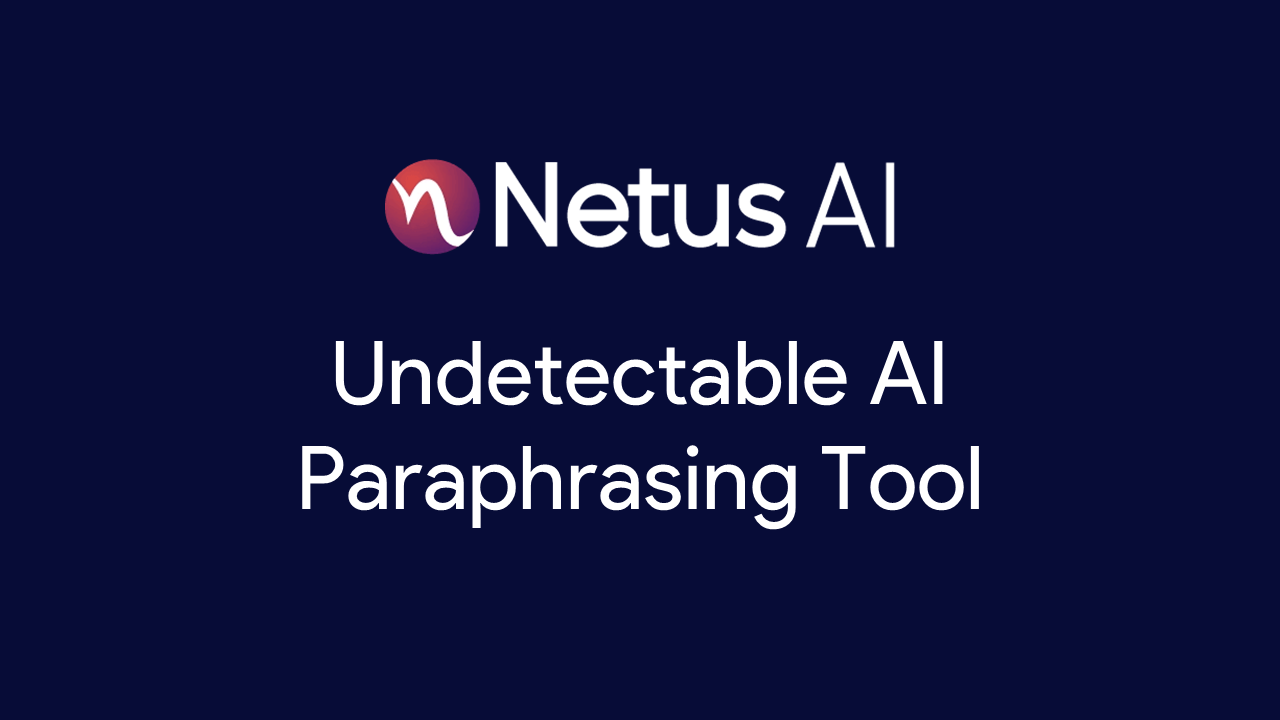
Navigating the Landscape of AI Paraphrasing and Detection Tools
The evolving landscape of AI-driven paraphrasing tools has introduced a new era in content creation, where tools like NetusAI help writers produce unique, high-quality content quickly by transforming AI-generated text into human-like writing. NetusAI is equipped with features such as an AI bypasser to avoid detection and an AI detector to distinguish between human-written and AI-generated content with high accuracy. The ongoing debate about the effectiveness of these tools, particularly when compared to detection services like Turnitin, has sparked significant interest among educators and content creators.
NetusAI: A Comprehensive Paraphrasing Tool
NetusAI is designed to cater to various content needs, providing a sophisticated solution for those who require rapid and high-quality content generation. Its algorithms are crafted to bypass AI detection mechanisms, making it a valuable tool for users aiming to produce content that mimics human writing closely. The tool also includes an AI detector that accurately differentiates between human and AI-generated text, ensuring the integrity and authenticity of the content produced.
The Debate: QuillBot vs Turnitin
The comparison between QuillBot vs Turnitin has become a focal point in discussions about AI paraphrasing and detection. According to the Netus.ai blog, Turnitin's enhanced algorithms are now capable of detecting AI-generated content, including text paraphrased by tools like QuillBot. While QuillBot is designed to rephrase text while preserving its original meaning, its outputs can still exhibit patterns that are detectable by Turnitin. This development raises questions about the reliability of QuillBot for plagiarism avoidance, especially in academic settings.
How Turnitin Detects Paraphrased Content
Turnitin employs sophisticated algorithms to detect similarities in text, going beyond exact word matches to analyze the structure, context, and overall linguistic patterns. This advanced approach means that even significant alterations in wording by QuillBot can potentially be flagged. Educators and students alike are concerned with whether can teachers detect QuillBot-paraphrased content, and Turnitin’s capabilities suggest that the answer is increasingly affirmative.
The Effectiveness of QuillBot
QuillBot aims to offer alternative phrasing while maintaining the original meaning, providing a solution for users seeking to avoid plagiarism. However, its effectiveness in evading detection by Turnitin is inconsistent. The question, can Quillbot be detected, is central to this debate. Some users have reported that their QuillBot-paraphrased content was flagged by Turnitin, indicating that the detection tool can recognize AI-generated paraphrasing to some extent. Conversely, others have managed to submit QuillBot-generated work without being flagged, suggesting variability in detection based on the nuances of paraphrasing.
Turnitin's Advanced Capabilities
Turnitin continuously enhances its detection capabilities by incorporating machine learning and natural language processing (NLP). These advancements improve its ability to identify paraphrased and AI-generated content with increasing accuracy. As Turnitin's algorithms become more sophisticated, the challenge for paraphrasing tools like QuillBot intensifies, bringing the question of whether Quillbot vs Turnitin will evolve further in Turnitin's favor.
Practical Implications for Content Creators
For content creators, understanding the interaction between paraphrasing tools like QuillBot and detection services like Turnitin is crucial. The concern over can teachers detect QuillBot-paraphrased content underscores the need for vigilance. Relying solely on paraphrasing tools to avoid plagiarism is becoming less viable as detection algorithms advance. While tools like NetusAI offer features designed to circumvent detection, their long-term effectiveness is uncertain. Content creators must therefore employ multiple strategies to ensure their work remains original and free from plagiarism concerns.
Conclusion
The interplay between AI paraphrasing tools and detection services presents a challenging landscape for content creators. NetusAI exemplifies the advancements in AI-driven writing assistance, providing powerful tools for generating human-like content. However, as Turnitin and similar services enhance their detection capabilities, the question of is Quillbot AI detectable becomes increasingly relevant. Understanding these dynamics and the limitations of paraphrasing tools is essential for anyone involved in producing high-quality, authentic content. The evolving capabilities of detection algorithms emphasize the need for continuous adaptation and vigilance in the use of AI-driven writing tools.
Comments on “NetusAI”